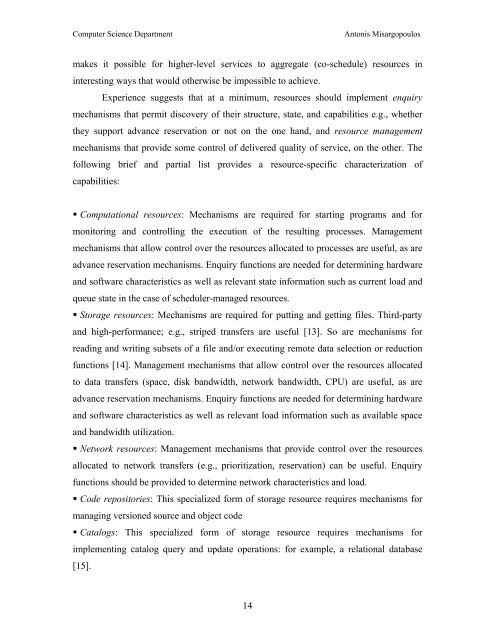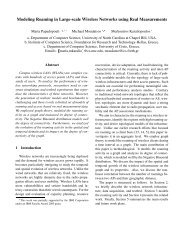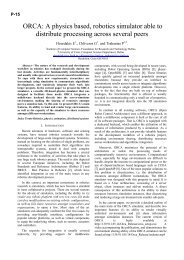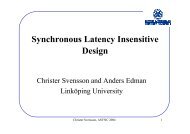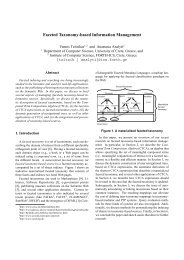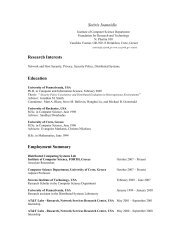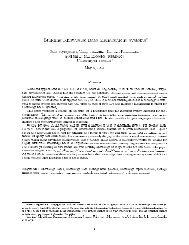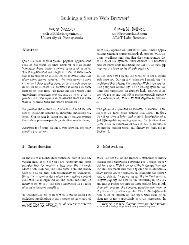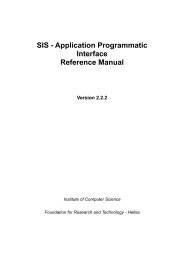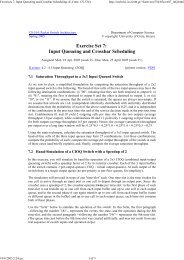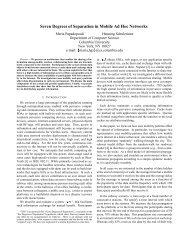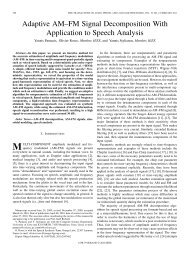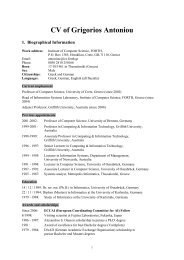Master Thesis - ICS
Master Thesis - ICS
Master Thesis - ICS
Create successful ePaper yourself
Turn your PDF publications into a flip-book with our unique Google optimized e-Paper software.
Computer Science Department<br />
Antonis Misargopoulos<br />
makes it possible for higher-level services to aggregate (co-schedule) resources in<br />
interesting ways that would otherwise be impossible to achieve.<br />
Experience suggests that at a minimum, resources should implement enquiry<br />
mechanisms that permit discovery of their structure, state, and capabilities e.g., whether<br />
they support advance reservation or not on the one hand, and resource management<br />
mechanisms that provide some control of delivered quality of service, on the other. The<br />
following brief and partial list provides a resource-specific characterization of<br />
capabilities:<br />
• Computational resources: Mechanisms are required for starting programs and for<br />
monitoring and controlling the execution of the resulting processes. Management<br />
mechanisms that allow control over the resources allocated to processes are useful, as are<br />
advance reservation mechanisms. Enquiry functions are needed for determining hardware<br />
and software characteristics as well as relevant state information such as current load and<br />
queue state in the case of scheduler-managed resources.<br />
• Storage resources: Mechanisms are required for putting and getting files. Third-party<br />
and high-performance; e.g., striped transfers are useful [13]. So are mechanisms for<br />
reading and writing subsets of a file and/or executing remote data selection or reduction<br />
functions [14]. Management mechanisms that allow control over the resources allocated<br />
to data transfers (space, disk bandwidth, network bandwidth, CPU) are useful, as are<br />
advance reservation mechanisms. Enquiry functions are needed for determining hardware<br />
and software characteristics as well as relevant load information such as available space<br />
and bandwidth utilization.<br />
• Network resources: Management mechanisms that provide control over the resources<br />
allocated to network transfers (e.g., prioritization, reservation) can be useful. Enquiry<br />
functions should be provided to determine network characteristics and load.<br />
• Code repositories: This specialized form of storage resource requires mechanisms for<br />
managing versioned source and object code<br />
• Catalogs: This specialized form of storage resource requires mechanisms for<br />
implementing catalog query and update operations: for example, a relational database<br />
[15].<br />
14


